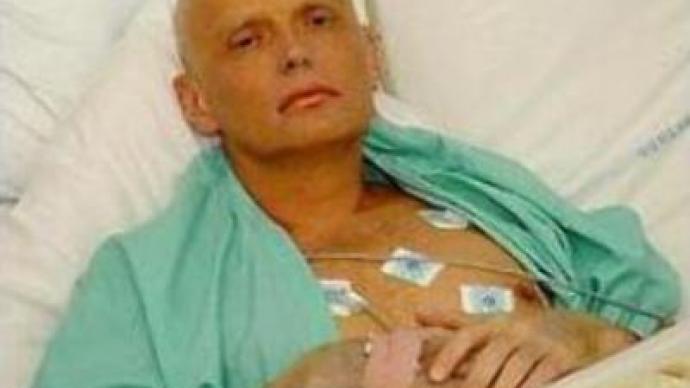The widow of former Russian FSB officer Aleksandr Litvinenko, who was murdered in London in 2006, admitted that her husband cooperated with the British intelligence services MI5 and MI6.
At the reopened hearings in the case in London, Marina Litvinenko announced that she decided to disclose the information in the name of transparency of the investigation.In an interview with the BBC Russian Service, she said that her husband was not working for MI5 or MI6 per se, but rather “consulted them in an operation to combat Russian organized crime in Europe,” in particular Spain, and got “tens of thousands of pounds” for his service.Marina Litvinenko mentioned that British secret service contacted her husband after he asked for political asylum in the UK.Marina Litvinenko also accused the Russian government of paying for the defense fees of the prime suspect in the poisoning, Andrey Lugovoy, also a former Russian FSB officer and now a Russian Parliament member, the UK’s Mail newspaper reported.Andrey Lugovoy has categorically denied his involvement in the murder of Litvinenko in November 2006. He claims that most likely Litvinenko was killed by somebody associated with self-exiled oligarch Boris Berezovsky.Lugovoy insists the murder was organized by Berezovsky and executed by British intelligence, though he does not rule out that Litvinenko became a victim of his own carelessness while performing an intelligence task.A British court will consider Lugovoy’s version for the first time. Previous requests to do so were denied.Lugovoy was charged in absentia with Litvinenko’s murder in May 2007. However, Russian officials refused to extradite him, referring to the Russian Constitution, which forbids the extradition of Russian citizens for trial abroad.The new hearing on Litvinenko’s poisoning started on October 13. MI5 and MI6 agents are expected to testify at the hearing, along with Lugovoy himself, who will take the stand via video conference.Lugovoy is being represented by Jessica Simor, a leading human rights lawyer who works with Cherie Booth QC at Matrix Chambers, the Mail reported.It must be noted that the legal proceedings in the case are going to be closed to the public, so neither press nor officials from the Russian embassy in London will be allowed to attend it.The British Daily Telegraph reported that one of the primary tasks of the renewed case will be to distinguish the degree of involvement of the Russian authorities in Litvinenko’s murder, because the British establishment has been suggesting that the Kremlin had a hand in the case from the very beginning.Litvinenko died in a London hospital on November 24, 2006, of radioactive poisoning by Polonium 210.Shortly before he succumbed to the poisoning, he blamed the Russian security services for his death.British Prosecutor General has put the blame for Litvinenko’s death on Lugovoy and two Russian businessmen, Dmitry Kovtun and Vyacheslav Sokolenko. The three men met together in Litvinenko’s room at London’s Millennium Hotel three weeks prior to the former FSB officer’s death.After Russia refused to extradite Lugovoy in May 2007, the case was frozen and renewed only this month.

